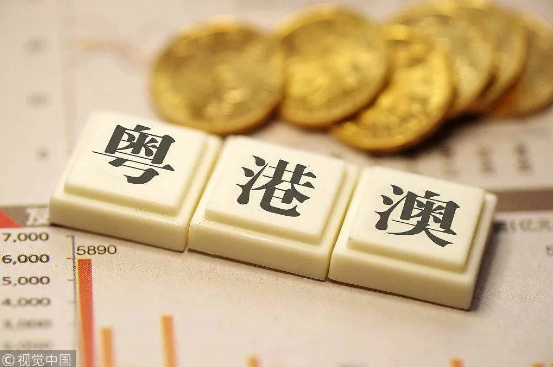Shenzhen tax reduction of 15% to attract talent, can be copied to the country
At the recently held 2019 Future Forum Shenzhen Technology Summit, Wang Lixin, deputy mayor of Shenzhen, announced that in the overseas talent introduction policy, the shortage of talents working in Dawan District of Guangdong, Hong Kong and Macao will enjoy a 15% personal income tax reduction.
He said, "You have a salary of 150,000, you have to pay 450,000 tax. Now you only have to pay 150,000 tax. You have 300,000 more. The people in the house are very happy, so your life will be better."
It is worth noting that the announcement was only four days from the founding of Huawei’s founder Ren Zhengfei, “the international talent tax is highâ€. The personal income tax preferential policy of Guangdong, Hong Kong and Macau Dawan District announced by the Ministry of Finance and the State Administration of Taxation in March was only two months. Shenzhen is the introduction of this tax preferential policy, which is called "Shenzhen speed."
As we all know, the future competition is the competition of science and technology, and behind the competition of science and technology is the competition of talents.
From a global perspective, countries are increasingly vying for international talent, and the methods used are diverse. Among them, the use of taxes, especially personal income tax incentives, to recruit talent has become one of the effective methods.
In comparison, China's higher personal income tax marginal tax rate has largely become an obstacle to the introduction of talent.
At present, China's personal income tax rate is divided into seven levels, the highest is 45%, that is, the monthly salary of more than 80,000 yuan is calculated according to 45%. If the social security is deducted, the monthly salary of 100,000 yuan is taken as an example. Without considering other deductions, the final tax is close to 30,000 yuan, and the actual amount is only 70,000 yuan.
In contrast, the highest rate of personal income tax in Japan is 40%, the highest in the United States is 35%, the basic rate of personal income tax in the UK is 20%, and Russia has a single rate of 13%.
It can be seen that the highest tax rate of 45% in China is very unfavorable for talent attraction. It is extremely urgent to formulate more favorable tax incentives to increase the attractiveness of international talents.
As one of the regions with the highest degree of openness, the strongest economic vitality and the most active innovation activities in China, Shenzhen has clearly proposed a 15% tax incentive for overseas high-end shortage talents employed in Dawan District, which will undoubtedly enhance the region's global talents. Appeal. Shenzhen is the first to exert its strength in this respect, and it also has its inevitability.

â–²Data Map Image Source: Vision China
In the past two years, the “grabbing war†between cities has been in the ascendant, and many cities have introduced a policy of “great package†to attract domestic and foreign talents.
For the Greater Bay Area of ​​Guangdong, Hong Kong and Macau, which has a strategic position, it should act as a “first mover†in attracting talent policy innovation. In February this year, the "Guangdong, Hong Kong and Macao Dawan District Development Plan" issued by the Central Committee of the Communist Party of China and the State Council clearly stated the strategic positioning of "building an international scientific and technological innovation center with global influence". To achieve this, a talent pooling effect is needed.
Prior to this, the “innovative city†represented by Shenzhen has exerted its strength in attracting domestic and overseas high-end talents, such as the introduction of millions of incentive subsidies, the settlement of children’s schooling and spouse work, and housing subsidies. "Preferential", which also makes up for the "lack of advantages" in the cultivation of talents, so that its high-end manufacturing sector has a lot of competitiveness. However, it is necessary to consider it in the large plate of the coordinated development of the Dawan District of Guangdong, Hong Kong and Macao. It is obviously necessary to continue to increase the code.
A large tax concession is a big move that can be made in this regard. For the shortage of talents, the annual salary of one million is a very common situation. In the case that their tax is limited by the personal income tax marginal tax rate, the tax reduction benefit brought by the 15% tax concession is obvious, just like Shenzhen. Wang Lixin, deputy mayor of the city, said that the annual tax of 1 million yuan can be reduced by more than half.
Faced with the escalation of trade protectionism and the increasing technical barriers, we should speed up the pace of talent cultivation and reserve, and constantly expand the channels for talent introduction from overseas to make up for the shortage of talents in the country. It is also necessary to come up with such a highly practical big move.
At present, the state's tax incentives for the international shortage of talents in Guangdong, Hong Kong and Macau are just regional policies. It is entirely possible to consider extending it to major cities across the country as soon as conditions permit, to form multiple talented highlands, to create multiple innovation points, and to help build an innovative country.
Sensor Light Bulb,Sensor Led Night Light,Motion Sensor Led Light,Human Motion Sensor Led Light
JIANGMEN MOSCOT OPTOELECTRONIC TECHNOLOGY CO.,LTD. , https://www.sensorsled.com